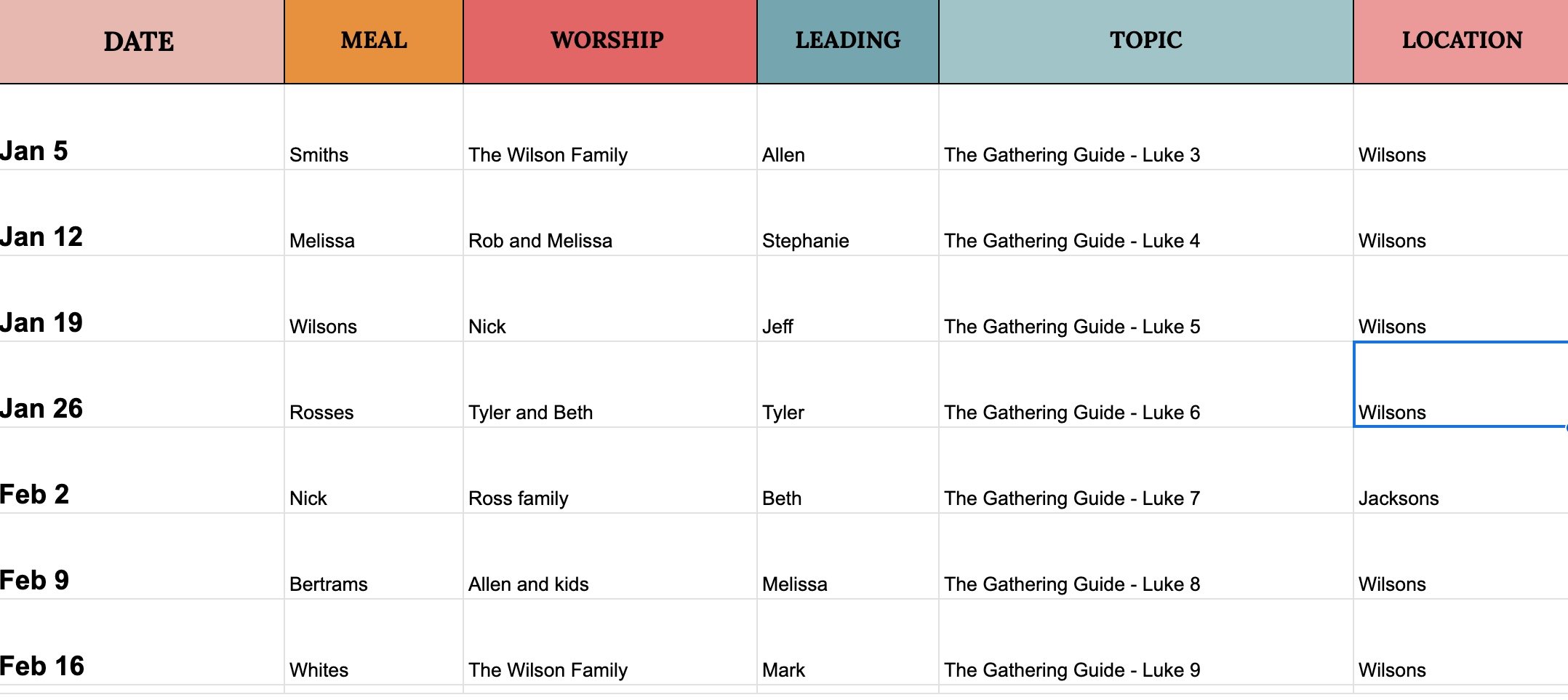The Community Calendar
The Community Calendar is a great way to organize your use of the guides and tools from the Dwellings Pathway, along with roles during weekly gatherings in a community or in a house church. We highly value participation, and this calendar makes it easy for everyone to see who is doing what. Check out the sample Community Calendar, and then make a copy of the customizable one to create your own Community Calendar. If you have an app where your community communicates, like GroupMe or WhatsApp, you can pin it at the top for people to access easily.
HOW TO PLAN YOUR COMMUNITY CALENDAR:
DISCERN // First, ask the Spirit for discernment around what needs the group has, and what topics and Scripture passages would be helpful for the season ahead.
Guides - You can use the Gathering Guide as your foundational rhythm week-to-week, with your choice of Scripture passages. If your community is moving toward becoming a house church, you can enter the 8-week House Church Guide into the calendar. If you’re thinking toward multiplication, you’ll enter the one-week Multiply Guide into the schedule. Always come back to the Gathering Guide as the foundation for your weekly gathering most of the year.
Tools - You’ll typically also use one tool per quarter, located in the Pathway Toolbox below the guides, according to the needs of your community, so place the ones you sense your community needs into your calendar. Most of them are just a one-week tool.
CUSTOMIZE // Next, fill in the dates for your gatherings in the season ahead, along with topics you’ve chosen (including Scripture passages) on the customizable Community Calendar for the next 4-6 months, acknowledging Easter and Christmas. You can add or delete any other columns. (ex. You can delete the signup column titled “MEAL” if your community preferes potluck style or just having snacks to one person bringing food each time.)
ASK // Ask your community to fill in blanks on the calendar. Most people in a house church will have some sort of role each week. It is often helpful for one person to be in charge of a category — making sure blanks are filled in for the season ahead. (example: Sarah makes sure all the blanks are filled in for meals) It’s also good to communicate that when someone’s schedule changes, that they need to initiate trading dates with someone else, keeping one person from feeling a load. In everything, think about delegation and giving away responsibility. You will not always be in town, and you will quickly run out of steam if you are doing too much. Your biggest job is activating and enabling others.

